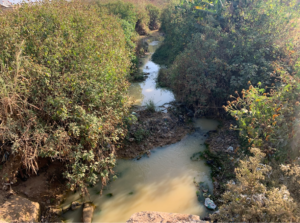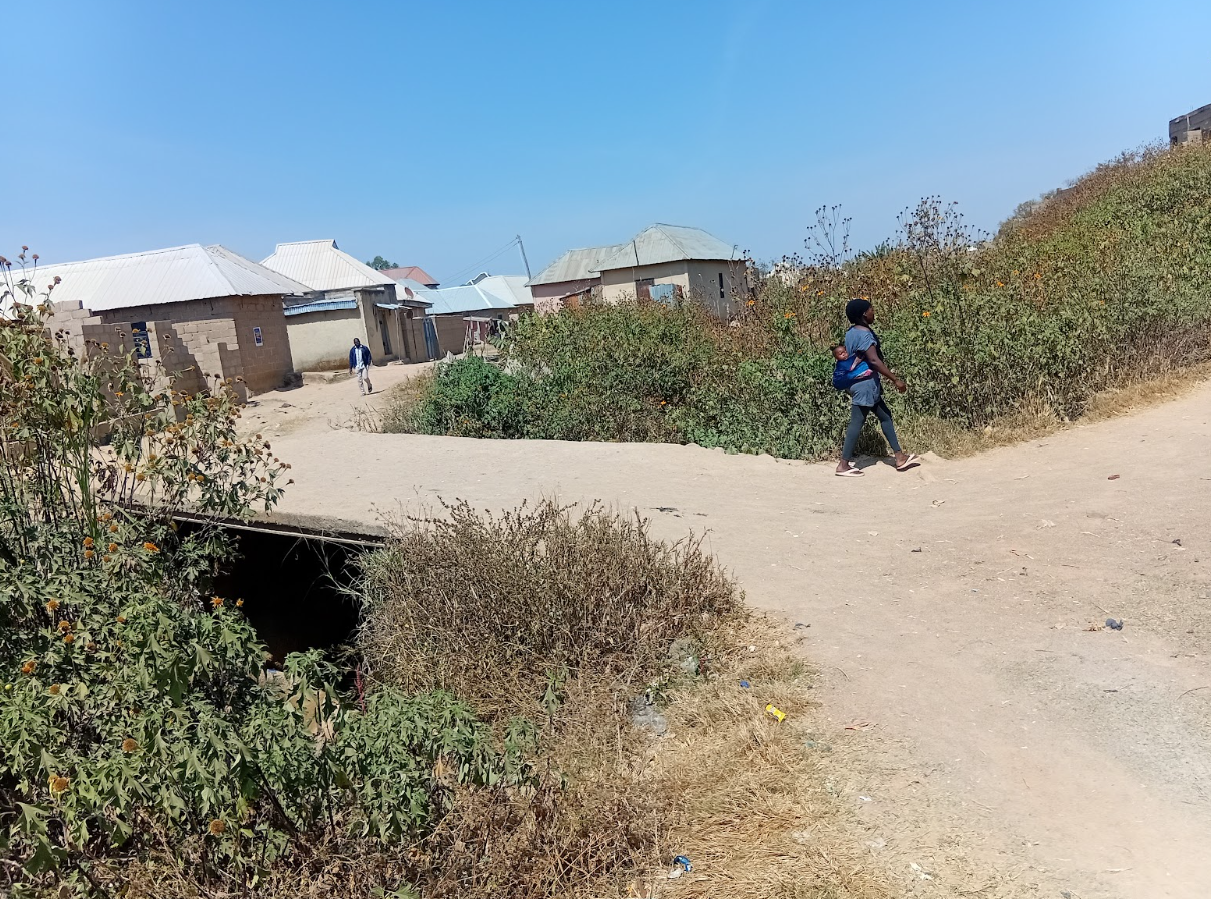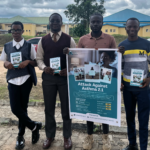Despite Nigeria ranking as having the sixth worst accessible road infrastructure on the continent, a community in Plateau State has transformed a worn-out river crossing into a reliable bridge, providing essential access to their homes and facilities.
Plateau, Nigeria – At 3pm on a Monday in August 2024, dark clouds gathered ominously over Twanchit, a suburban community in Jos, Plateau State.
Where Tapchin Micha would have dashed home frantically to avoid being stranded by an overflowing river, she dismissed the dark clouds with an air of nonchalance instead: “My community people have built a bridge; I no longer have to wait for hours for the river to subside before getting home,” exclaimed the 28-year-old.
In 2022, Micha and her family moved to a new home in Twanchit to escape high rent. But their new neighbourhood was far from welcoming.
“We were uncomfortable with the inadequate drainage, poorly designed houses, and the challenging road network in this community,” she recounted.
She recalled an awful experience during her first year in the community. A river sectioning the community off the main road overflowed in the aftermath of a heavy rain, submerging the makeshift bridge. “I couldn’t cross to the other side, ” she said. “We had to wait for over an hour before we could finally cross.”
Twanchit Bridge’s issue is not unique. Nearly 80 million Nigerians are estimated to live in slums and squatter communities without access to good roads.
United by Necessity
As a youth leader in Twanchit Community, Nicholas Benedict Shepkon was all too familiar with the stakes. Years earlier he’d galvanised youths into building makeshift “monkey” bridges in five Jos communities. In the aftermath of the bridge’s collapse in 2019, Shepkon began “talking to the youths and the community leaders on how to solve the problem,” he said.

The crumbling bridge had effectively isolated parts of Twanchit, cutting off access to the community’s primary school and healthcare clinic.
Repeated pleas to government authorities fell on deaf ears, prompting the youth leader to seek alternative solutions.
“I spoke to a friend who had access to some abandoned iron railings in a different community to support building the bridge,” he continued. “Some people in this community opposed the idea, but one man rented a truck to transport the four rail irons. After that, we began collecting voluntary donations from every household to purchase cement.”
After an initial delay due to funding challenges, the project got off to a bad start in 2023 following the ward’s leader’s arrest by the police. “They [the police] accused him of stealing iron rods they alleged were government property,” Skepkon related.
Given that he had brought the iron railings to the community himself, Shepkon was also rounded up when he visited the police station to demand the community leader’s release. “However the case was resolved, and we were both released,” he said.
Afterwards, Shepkon and the community leaders visited homes to solicit their support for the construction of the bridge, which was scheduled for a weekend in September 2023. Not every home complied, but the cause drew wide support from the women, who helped to fetch gravel from a nearby bush for the local builders.
“It was a very beautiful collaboration,” said Danlami Audu, a resident of Twanchit. “It was such a great success to see people in the community come together to achieve this goal instead of waiting for the government to do it.”
“Now, I can park my car at home, thanks to this community-driven effort,” enthused Maliot Aron, another Twanchit resident who previously parked his car in filling stations owing to the deplorable road.
Initiatives like the one in the Twanchit community reflect the recommendations by experts to “individuals and communities to find a sustainable solution to their challenges,” as one real-estate consultant says.
Meanwhile, Micha is excited at the resilience of her neighbourhood. “Living here has taught me the value of unity and perseverance. Despite the difficulties, we come together to make things better, proving that change is possible when people work hand in hand,” she said.
In Plateau State, Nigeria, a community initiative in Twanchit has successfully transformed a deteriorating river crossing into a reliable bridge, significantly enhancing accessibility for locals. This achievement comes amidst Nigeria's poor road infrastructure, with an estimated 80 million residents living in slum conditions without access to proper roads. Twanchit's previously makeshift bridge collapsed, isolating parts of the community and obstructing access to essential services like schools and clinics.
Spurred by the community's youth leader, Nicholas Benedict Shepkon, locals pooled resources, secured materials like iron railings, and collaborated to rebuild the bridge, despite initial governmental neglect and police interference. This community-driven project not only resolved accessibility issues but also fostered unity among residents, emphasizing the benefits of collective action and self-sufficiency in addressing infrastructure challenges. The initiative underscores a broader recommendation for local communities to independently create sustainable solutions to their problems, showcasing the power of communal perseverance and innovation.






